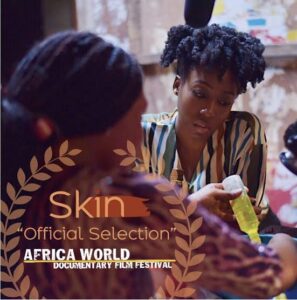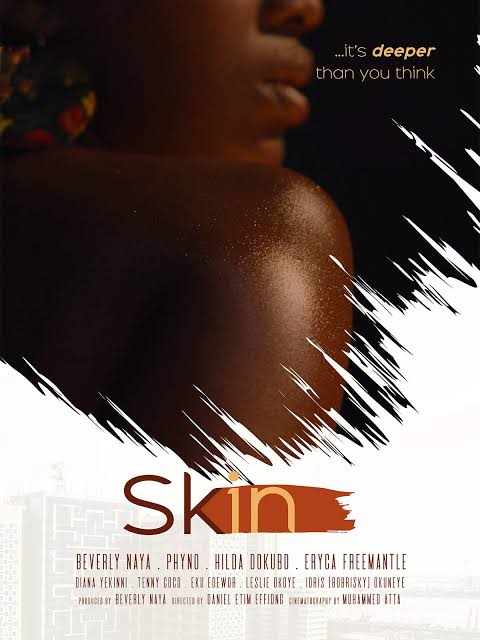
Beverly Naya
“I had crooked teeth and I had really bad eczema,” said Naya, whose full name is Beverly Ifunaya Bassey. “And even though I fixed my teeth and my skin cleared over time, the damage had already been done to my mental state and how I saw myself. So as I got older, I realized that I just didn’t feel beautiful” British-Nigerian actress, Beverly Naya tells CNN Lagos, Nigeria.
Ms. Naya has produced a documentary on Netflix titled “Skin” to explore colourism in Africa.
Recall that we made a report about Kenyan’s TV personality, Yvonne Okwara’s post on her Instagram page about colourism and how it rids dark-skinned women of equal opportunities with light-skinned women.
Unlike racism, colourism is the discrimination of people based on skin shades; and it is prevalent among people of the same ethnic or racial group. Yes, indeed.
In many parts of Africa, light skinned women are considered more beautiful and have better chances at job opportunities in fields like entertainment, marketing and the tourism industry.

“Skin” is an hour-long documentary that compiles the stories of some Black women in Nigeria who have been treated differently for having dark skin. They publicly share their experiences about the pressures of being defined by their skin color.
Ms. Naya told CNN she was inspired to produce the documentary because she suffered low self-esteem when she was bullied for her skin color while growing up in the United Kingdom. She also said that in her early 20s she began to work on regaining her self confidence by learning to love herself and launching an anti-bullying campaign.
In Skin, @BeverlyNaya explores colorism and finding the true meaning of beauty in the different shades of black by speaking to individuals who have dealt with pressure to conform to society’s standards of beauty.
Skin is now streaming pic.twitter.com/AXgiavchfD— Netflix Naija (@NetflixNaija) June 28, 2020
“I want to inspire young people to love themselves. And I decide to use my documentary, ‘Skin,’ because I didn’t want to restrict my message to a small community. I knew it was important to get the message further,” Ms. Naya said.
A preference for light skinned societies dates to slavery in the 1600s, according to a 2020 report published in the journal E-International Relations- CNN.
It is reported that slave masters had a special preference for lighter skinned slaves, who were assigned less difficult indoor tasks as opposed to often horrifying outdoor duties.
British-Nigerian actress, Diana Yekini was featured in the documentary amongst other black women; she recalled an incident on the set of a Movie in Nigeria.
Ms. Yekini said social perceptions around skin color have seeped into the entertainment industry, where many dark-skinned women are denied roles.
“The issue is that regardless of how amazing you were, you could kill it, you could be fabulous, you could be what they want secretly, but if you’re not fair, that’s it,” she said in the documentary.
Controversial Nigerian cross-dresser, Bobrisky is also a cast in the documentary. He said
“You do not love yourself enough or appreciate the way God created you”.
According to Global Industry Analysts, The global market for skin lighteners will reach $31.2 billion by 2024, with huge markets in Asia, the Middle East and Africa.
Moreso, a report by the University of Washington says bleaching products are the fourth most sought after household item by African women.
In her documentary, Ms. Naya says one way to minimize skin bleaching and combat colorism is to create an environment where darker-skinned women feel loved and beautiful.
“From a young age we need to start affirming the beauty of dark skin so that girls can grow up confident in being Black. If we don’t do that they will pick up the wrong information elsewhere,” she said.
According to Ms. Naya, her documentary was well recieved as many women personally sharing their experiences around colorism with her.
“I am so honored by the response to my documentary and I am happy that many women are learning to love their skin through it,” she said



